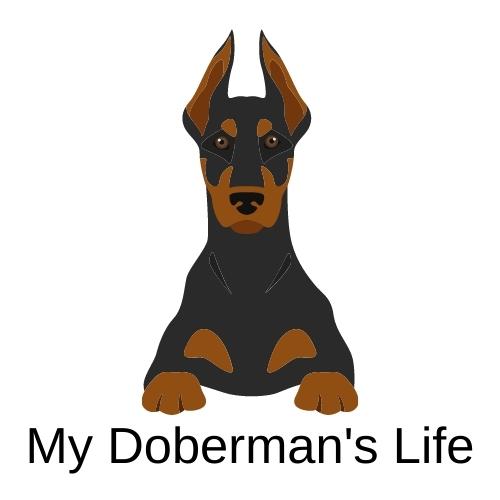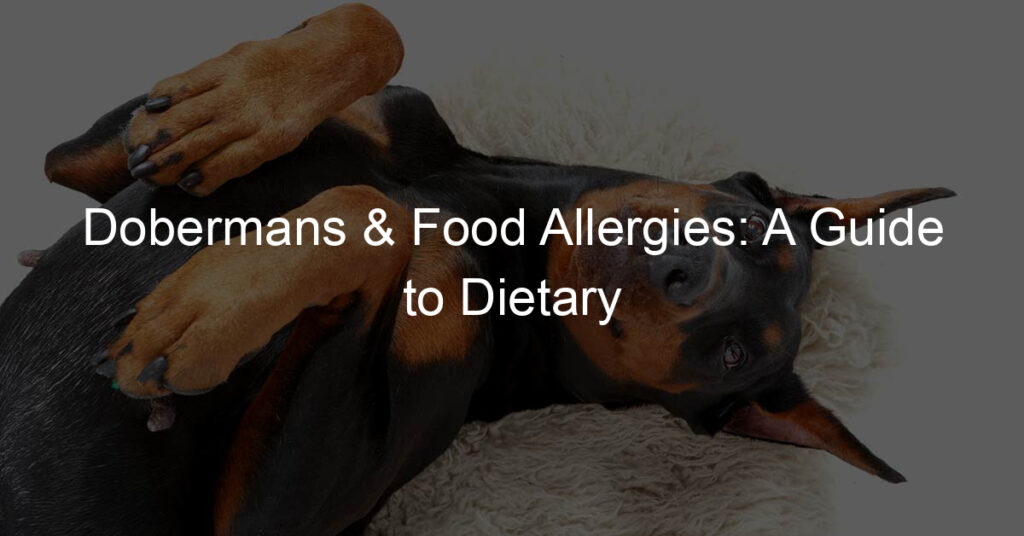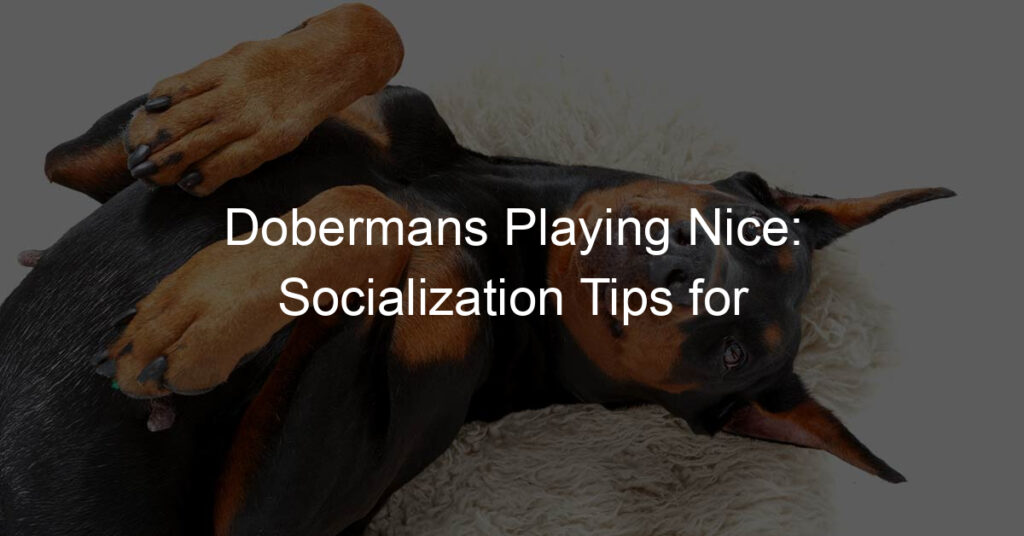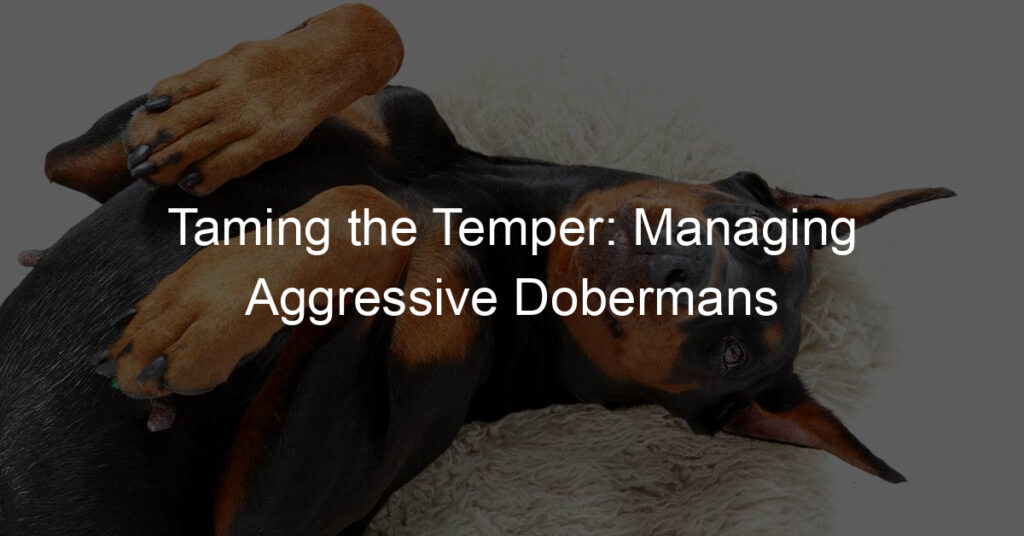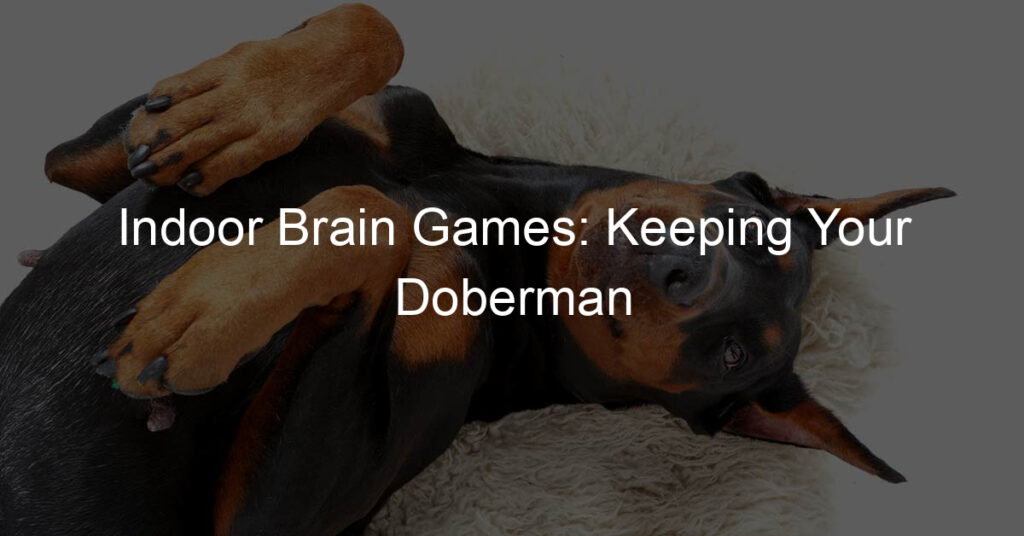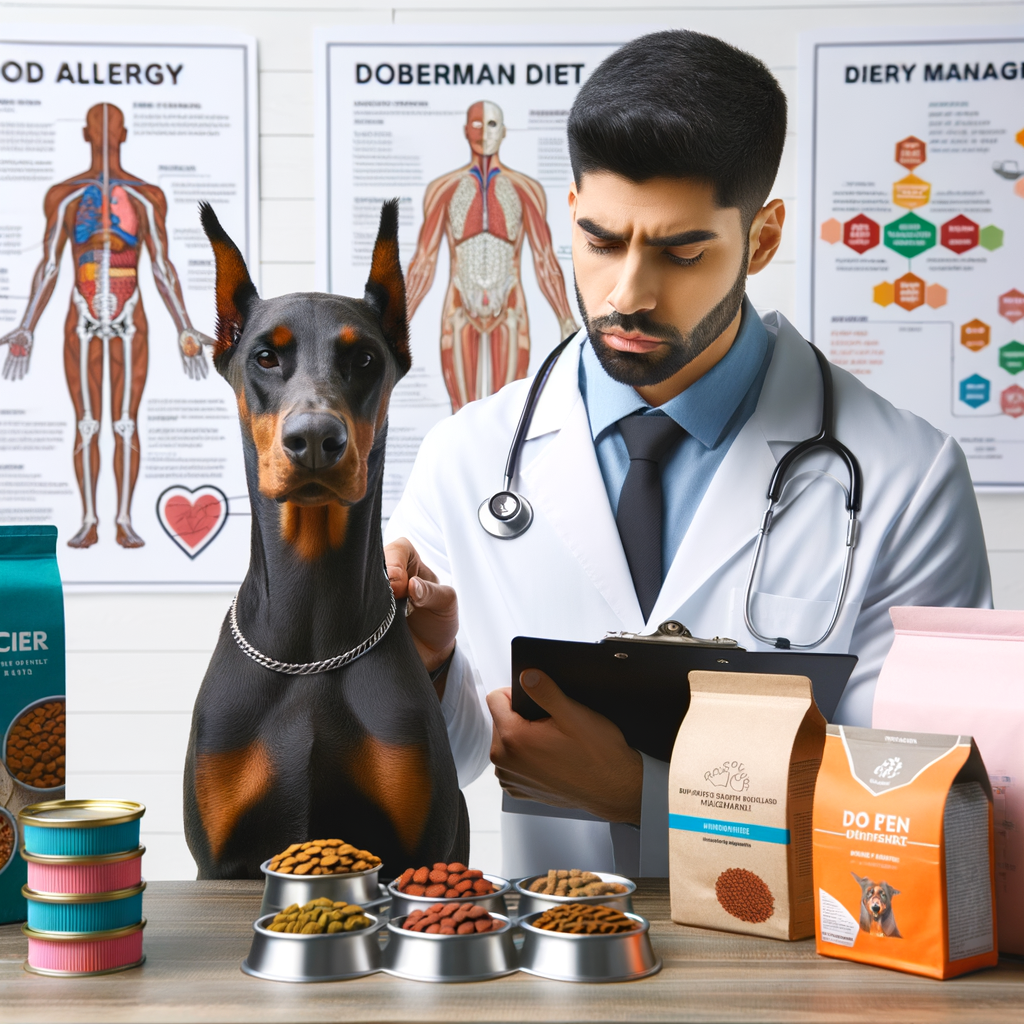
Introduction to Doberman Food Allergies
As a Doberman owner, it’s crucial to understand the potential health issues your pet may face. One such issue is food allergies. In this section, we will delve into the concept of food allergies in dogs, specifically focusing on Dobermans.
- Understanding the concept of food allergies in dogs
- Prevalence of food allergies in Dobermans
Food allergies in dogs occur when their immune system mistakenly identifies a particular food ingredient as harmful and reacts against it. This reaction can cause various symptoms, ranging from skin conditions to gastrointestinal problems. It’s important to note that food allergies are different from food intolerance, which is a digestive problem and does not involve the dog’s immune system.
Dobermans, like many other breeds, are susceptible to food allergies. While the exact prevalence is hard to determine due to the lack of comprehensive studies, anecdotal evidence suggests that a significant number of Dobermans suffer from food allergies. In a survey conducted among Doberman owners, it was found that approximately 1 in 5 Dobermans showed signs of food allergies at some point in their lives. This highlights the importance of being aware of this issue and taking proactive steps to manage it.
In the following sections, we will further explore the symptoms of food allergies, common food allergens in Dobermans, and how to diagnose and manage these allergies. By understanding these aspects, you can ensure your Doberman leads a healthy and comfortable life.
Recognizing Doberman Allergy Symptoms
As a Doberman owner, it’s crucial to recognize the signs of food allergies in your pet. These symptoms can be physical or behavioral, and they may vary from dog to dog. Let’s delve into the details of these symptoms to help you better understand and manage your Doberman’s health.
- Physical symptoms of food allergies in Dobermans
- Chronic ear infections: If your Doberman is constantly scratching its ears or shaking its head, it might be suffering from an ear infection caused by a food allergy.
- Skin issues: Food allergies can cause skin problems such as redness, itching, and hives. You might also notice your Doberman licking or chewing on its paws excessively.
- Gastrointestinal problems: Food allergies can lead to digestive issues like vomiting, diarrhea, and excessive gas. If your Doberman is experiencing these symptoms, it’s possible that it’s allergic to something in its diet.
- Behavioral changes due to food allergies
- Decreased activity: If your Doberman is less active than usual, it might be feeling unwell due to a food allergy.
- Changes in appetite: A sudden increase or decrease in your Doberman’s appetite could be a sign of a food allergy.
- Excessive grooming: If your Doberman is grooming itself more than usual, it might be trying to soothe itchy skin caused by a food allergy.
Physical symptoms are often the most noticeable signs of a food allergy in Dobermans. These can include:
Behavioral changes can also indicate a food allergy in Dobermans. These changes might not be as obvious as physical symptoms, but they’re equally important to notice. Here are some behavioral changes to look out for:
Recognizing these symptoms early can help you take the necessary steps to manage your Doberman’s food allergies. Remember, every dog is unique, and what works for one might not work for another. Always consult with a veterinarian if you suspect your Doberman has a food allergy.
Common Food Allergens in Dobermans
Dobermans, like humans, can have food allergies. These allergies are often caused by certain ingredients found in their diet. Let’s explore some of the most common food allergens that can affect your Doberman’s health.
- Protein sources
- Dairy products
- Grains
- Artificial additives
Protein is an essential part of a Doberman’s diet, but certain sources can cause allergic reactions. Common culprits include beef, chicken, and fish. Some Dobermans may also react to more exotic proteins like venison or duck. If your Doberman shows signs of an allergic reaction, it might be worth considering a diet change to a different protein source.
Dairy products like milk, cheese, and yogurt can also cause allergies in Dobermans. Lactose intolerance is common in dogs, and consuming dairy products can lead to digestive issues such as diarrhea and vomiting. It’s best to avoid giving your Doberman dairy products unless recommended by a vet.
Grains, particularly wheat and corn, are another common allergen for Dobermans. These grains are often used as fillers in cheaper dog foods and can cause skin irritations, digestive issues, and other allergic reactions. Opt for grain-free dog food options if your Doberman shows signs of a grain allergy.
Artificial additives like colorings, flavorings, and preservatives can also cause allergies in Dobermans. These additives are often found in lower-quality dog foods. Symptoms of an allergic reaction to artificial additives can include skin irritations, digestive issues, and behavioral changes. Always opt for natural, high-quality dog food to avoid these potential allergens.
Remember, every Doberman is unique, and what causes an allergic reaction in one dog might not affect another. If you suspect your Doberman has a food allergy, it’s best to consult with a vet. They can help identify the allergen and suggest a suitable diet for your dog.
Doberman Food Intolerance vs Food Allergies
When it comes to our beloved Dobermans, it’s crucial to understand the difference between food intolerance and food allergies. Although these terms are often used interchangeably, they are not the same. Let’s delve into these two conditions to better understand how they affect our four-legged friends.
- Understanding the difference
- Identifying food intolerance in Dobermans
Food allergies and food intolerances are different types of reactions in the body. A food allergy involves an immune system response. When a Doberman with a food allergy eats a certain food, their immune system mistakenly identifies it as harmful and launches a defensive response. This can lead to symptoms like itching, swelling, and difficulty breathing.
On the other hand, food intolerance is a digestive issue. It occurs when a Doberman’s digestive system can’t properly break down a certain type of food. This can lead to symptoms like diarrhea, bloating, and stomach pain. Unlike food allergies, food intolerances do not involve the immune system.
Identifying food intolerance in Dobermans can be a bit tricky because the symptoms often resemble those of other conditions. However, common signs of food intolerance in Dobermans include frequent diarrhea, vomiting, excessive gas, and a bloated belly. If your Doberman is showing these signs, it’s important to consult with a veterinarian. They can help determine whether your dog has a food intolerance or if there’s another underlying issue.
In conclusion, understanding the difference between food intolerance and food allergies in Dobermans is crucial for their health and well-being. By being aware of the signs and symptoms of these conditions, you can ensure your Doberman gets the right treatment and continues to lead a happy and healthy life.
Diagnosing Food Allergies in Dobermans
When it comes to our beloved Dobermans, their health is our top priority. One common health concern is food allergies. Let’s discuss how to diagnose these allergies with the help of a professional.
Consulting a Vet
It’s crucial to consult a vet when you suspect your Doberman might have a food allergy. Here’s why:
- Importance of professional diagnosis
- Diagnostic tests for food allergies
A professional diagnosis is essential because food allergies can be complex and confusing. Symptoms can overlap with other health issues, making it hard to pinpoint the exact cause. A vet has the knowledge and experience to accurately diagnose food allergies and recommend the best course of treatment.
Vets use several diagnostic tests to identify food allergies in Dobermans. These include blood tests, skin tests, and dietary elimination trials. Each test provides unique insights and helps the vet understand your Doberman’s specific allergic reactions.
Remember, a professional diagnosis is the first step towards helping your Doberman live a happy, healthy life. If you suspect a food allergy, don’t hesitate to consult your vet.
Elimination Diet
When it comes to diagnosing food allergies in Dobermans, an elimination diet is a useful tool. This process involves removing certain foods from your dog’s diet to see if their symptoms improve. Let’s delve deeper into understanding and implementing this diet.
- Understanding the Process
- Implementing the Elimination Diet
- Consult your vet: Always consult your vet before making any drastic changes to your dog’s diet. They can guide you on the best foods to eliminate and how to ensure your dog still gets the necessary nutrients.
- Choose a novel protein and carbohydrate: Start by feeding your dog a diet consisting of a single source of protein and carbohydrate that they’ve never eaten before. This reduces the chance of an allergic reaction.
- Monitor your dog: Keep a close eye on your dog’s behavior, skin condition, and overall health. If symptoms improve, it’s a good sign that one of the eliminated foods was causing the allergy.
- Reintroduce foods gradually: After the elimination phase, slowly reintroduce each food item one by one, while keeping a close watch for any allergic reactions.
The elimination diet is a method used to identify food allergens causing adverse reactions in your Doberman. It’s a two-phase process: the elimination phase and the reintroduction phase.
In the elimination phase, all potential allergenic foods are removed from your dog’s diet for a certain period, usually 8-12 weeks. This gives the body time to eliminate any allergens and for symptoms to subside.
The reintroduction phase follows, where foods are gradually reintroduced one at a time, while closely monitoring your dog for any signs of allergic reactions. If symptoms reappear, it’s likely that the reintroduced food is the culprit.
Implementing an elimination diet requires patience and careful observation. Here are some steps to follow:
Remember, an elimination diet is not a permanent solution but a way to identify the food allergens causing discomfort to your Doberman. Once identified, these foods should be permanently excluded from their diet.
Doberman Dietary Management
Managing the diet of your Doberman is crucial, especially if they have food allergies. A balanced diet is key to their overall health and well-being.
Creating a Balanced Diet
Creating a balanced diet for your Doberman is a two-step process. First, you need to understand the importance of a balanced diet. Second, you need to know the components that make up a balanced diet for a Doberman.
- Importance of a Balanced Diet
- Components of a Balanced Diet for Dobermans
- Protein: Dobermans are active dogs and need a high-protein diet to support their muscle development and energy levels. Good sources of protein include chicken, beef, and fish.
- Fats: Fats provide energy and help absorb vitamins. They also contribute to a healthy coat. Healthy fats can be found in fish oil, flaxseed, and certain cuts of meat.
- Carbohydrates: Carbohydrates provide energy and are important for digestion. Good sources of carbohydrates include whole grains like brown rice and oats.
- Vitamins and Minerals: These are essential for various bodily functions, including bone health and immune function. They can be found in fruits, vegetables, and certain dog foods.
- Fiber: Fiber aids in digestion and can help prevent constipation. It can be found in vegetables, fruits, and whole grains.
A balanced diet is vital for your Doberman’s health. It provides the necessary nutrients that your dog needs to grow and stay healthy. It also helps to maintain a healthy weight, which is important for Dobermans as they are prone to certain health issues like hip dysplasia and heart disease. A balanced diet also boosts the immune system, helping your Doberman fight off diseases and allergies.
A balanced diet for a Doberman should include the following components:
Remember, every Doberman is unique and may have different dietary needs. It’s always best to consult with a vet to create a diet plan that suits your dog’s specific needs, especially if they have food allergies.
Best Diet for Doberman with Allergies
When it comes to managing allergies in Dobermans, diet plays a crucial role. There are two primary dietary approaches that can help alleviate allergy symptoms in your Doberman: hypoallergenic diets and homemade diets.
- Hypoallergenic Diets
Hypoallergenic diets are specially formulated to reduce allergic reactions. They typically contain hydrolyzed proteins, which are proteins broken down into smaller components that the immune system is less likely to recognize as allergens. This makes them a safe choice for dogs with food allergies.
For instance, a study found that 75% of dogs with food allergies showed improvement when switched to a hydrolyzed protein diet. This indicates that hypoallergenic diets can be a practical solution for managing food allergies in Dobermans.
- Homemade Diets
Homemade diets offer the advantage of complete control over what your Doberman consumes. This means you can eliminate any ingredients known to trigger your dog’s allergies. However, it’s crucial to ensure that the homemade diet is nutritionally balanced.
For example, a case study of a Doberman with severe food allergies showed significant improvement when switched to a homemade diet of turkey, sweet potatoes, and peas. The dog’s allergy symptoms reduced, and overall health improved, demonstrating the potential benefits of a well-planned homemade diet.
Regardless of the diet you choose, it’s essential to monitor your Doberman’s reaction closely. If symptoms persist or worsen, consult with your vet immediately. Remember, every Doberman is unique, and what works for one may not work for another.
| Diet Type | Benefits |
|---|---|
| Hypoallergenic Diets | Formulated to reduce allergic reactions, contains hydrolyzed proteins. |
| Homemade Diets | Allows control over ingredients, can eliminate known allergens. |
Allergic Reactions in Dobermans: Case Studies
Understanding food allergies in Dobermans can be complex. To help illustrate this, let’s look at two case studies of Dobermans who experienced allergic reactions to their food.
- Case Study 1: Doberman with Grain Allergy
Meet Max, a 3-year-old Doberman who started showing signs of discomfort after meals. His owner noticed that Max was scratching excessively, had red and inflamed skin, and was experiencing frequent ear infections. After a visit to the vet, it was determined that Max had a grain allergy.
Max’s diet was high in grains, including wheat and corn. His owner switched him to a grain-free diet, and within a few weeks, Max’s symptoms began to improve. He was less itchy, his skin was less inflamed, and his ear infections cleared up. This case study shows the importance of recognizing the signs of a food allergy and taking steps to adjust the diet accordingly.
- Case Study 2: Doberman with Protein Allergy
Next, we have Bella, a 5-year-old Doberman who started losing her fur and developing rashes on her skin. Her owner also noticed that Bella was vomiting after meals. After a series of tests, the vet diagnosed Bella with a protein allergy.
Bella’s diet was high in chicken, a common protein source in many dog foods. Her owner switched her to a diet that used fish as the primary protein source, and Bella’s symptoms improved significantly. Her fur started to grow back, her skin cleared up, and she stopped vomiting after meals. This case study highlights the importance of identifying the specific allergen causing the reaction and making dietary changes to alleviate the symptoms.
These case studies illustrate how different food allergies can manifest in Dobermans. They also highlight the importance of vigilance and swift action in managing these allergies. Remember, every dog is unique, and what works for one may not work for another. Always consult with a vet if you suspect your Doberman has a food allergy.
Doberman Allergy Treatment
When your Doberman is suffering from food allergies, it’s crucial to find effective treatments. These can be divided into two main categories: medical treatments and natural remedies. Let’s explore each of these in detail.
-
Medical Treatments
Medical treatments are usually the first line of defense against food allergies in Dobermans. Your vet may prescribe antihistamines to reduce itching and inflammation caused by the allergic reaction. In more severe cases, corticosteroids may be used to quickly control symptoms. However, these drugs should be used sparingly as they can have side effects.
Another medical treatment is hypoallergenic diets. These diets are made with hydrolyzed proteins, which are too small to trigger an allergic reaction. This can be a great way to manage food allergies in your Doberman.
Immunotherapy is another option. This involves giving your dog small amounts of the allergen to help their immune system become less sensitive to it. This treatment is usually used when other treatments have failed and the allergen can’t be avoided.
-
Natural Remedies
Natural remedies can also be effective in treating food allergies in Dobermans. These treatments focus on strengthening the dog’s immune system and reducing inflammation.
One popular natural remedy is Omega-3 fatty acids. These can be found in fish oil and are known to reduce inflammation. They can be added to your dog’s diet as a supplement.
Probiotics are another natural remedy. These are beneficial bacteria that can help strengthen your dog’s gut health, which is crucial for managing food allergies. They can be found in certain types of yogurt or as a supplement.
Finally, a simple but effective natural remedy is a balanced diet. This involves feeding your dog a diet that is rich in whole foods and low in processed foods. This can help strengthen their immune system and reduce the risk of food allergies.
Remember, every Doberman is unique and what works for one may not work for another. It’s important to work closely with your vet to find the best treatment for your dog’s food allergies.
Conclusion: Managing Food Sensitivity in Dobermans
As we reach the end of our discussion on food sensitivity in Dobermans, it’s clear that managing this condition requires a comprehensive understanding of your dog’s dietary needs, the symptoms of food allergies, and the most common allergens. Let’s summarize the key points and share some final thoughts on managing your Doberman’s diet effectively.
- Key takeaways
- Dobermans, like other breeds, can suffer from food allergies and intolerances. Symptoms can range from skin irritations to gastrointestinal issues.
- Common food allergens in Dobermans include beef, dairy, wheat, and chicken. However, each dog is unique, and what triggers an allergic reaction in one may not affect another.
- Diagnosing food allergies in Dobermans involves an elimination diet under the guidance of a veterinarian. This process helps identify the specific allergens causing the reactions.
- Managing a Doberman’s diet involves avoiding known allergens, providing a balanced diet, and monitoring for any signs of allergic reactions.
- Final thoughts on Doberman dietary management
Managing food sensitivity in Dobermans is not a one-size-fits-all approach. It requires patience, observation, and a commitment to providing the best care for your pet. Remember, a healthy diet is key to a happy and active Doberman. Consult with your vet regularly, keep track of your dog’s diet, and make necessary adjustments as needed. With the right approach, you can help your Doberman live a comfortable and allergy-free life.
